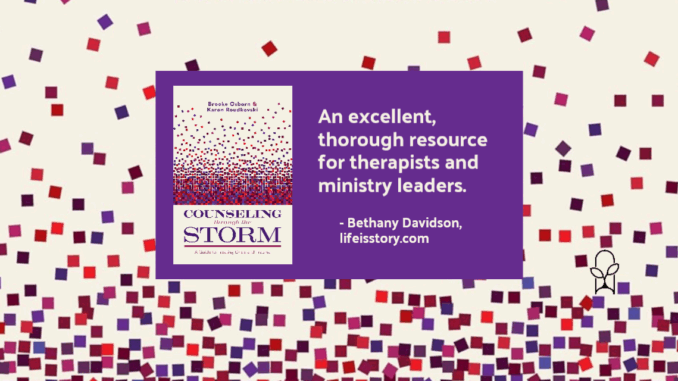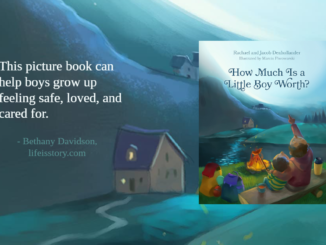
Also by this author: Understanding Spiritual Abuse: What It Is and How to Respond, Spiritual Abuse Recovery Workbook: Engaging Faith in Healing
Published by B&H Publishing, B&H Academic on June 1, 2025
Genres: Academic, Non-Fiction, Christian Life
Buy on Amazon
Goodreads

Seasons of crisis can come without warning, and their impact is lasting. Grief and trauma can reshape our lives, our relationships, and our faith. For those walking alongside someone in a time of crisis, the path forward may seem shaky and unclear.
In Counseling through the Storm: A Guide to Treating Crisis and Trauma, licensed professional counselors and professors Brooke Osborn and Karen Roudkovski provide an in-depth, trauma-informed guide for those ministering to someone in crisis. From their years of professional and classroom experience, Osborn and Roudkovksi offer practical and sensitive guidance for mentors, ministry leaders, and counselors.
This thorough, well-researched guide equips Christian counselors and pastors with key information for how to minister to people who are in crisis. The book begins by exploring the nature of suffering, what makes something a crisis, and how someone can assist with crisis management. After that, the book focuses on specific forms of crisis, such as bereavement, suicide, domestic violence, and abuse and trauma in a church context. The authors divided the chapters into clearly labeled sections, and each chapter also includes subject headings that make it easy to find what you’re looking for.
Authors Brooke Osborn and Karen Roudkovski distill their expert knowledge into fairly short chapters, focusing on the most important things for their readers to know about each issue. This book explores the impact of different crises in a thoughtful and sensitive manner, and the broad scope makes this especially helpful. The authors include suggestions for further reading if someone wants to do a deep dive, but they focus on breadth in this book, covering lots of different issues that will commonly arise in counseling and church ministry contexts. Someone can learn a lot from reading the entire book, and it can also be a helpful reference guide for someone to dip into when preparing to respond to a particular issue.
Counseling Through the Storm clearly conveys the authors’ compassion and personal expertise, and each chapter is full of wisdom and insight. Also, the content and writing style are surprisingly accessible. I expected this to be dense and academic in tone, but Osborn and Roudkovski wrote this in an engaging, conversational style, and they include illustrative examples and practical tips that connect with everyday life. They also clearly define important terms and avoid unnecessary jargon. This book is rigorous and detailed enough to be assigned reading in a university classroom, while still being accessible to readers who don’t have a background in psychology. In addition to this, the authors’ Christian perspective will resonate with people who are looking for resources that share up-to-date clinical knowledge from a Christian worldview.
Counseling Through the Storm: A Guide to Treating Crisis and Trauma is an excellent guide for therapists, counselors, and ministry leaders. This book explains essential information about a variety of different issues, and it includes practical tips for offering support. Christian therapists and ministers will appreciate this book’s excellent content and Christian perspective, and because this book is so readable and easy to understand, it will also appeal to church members who want to better understand and support friends and family who are dealing with crisis situations.



